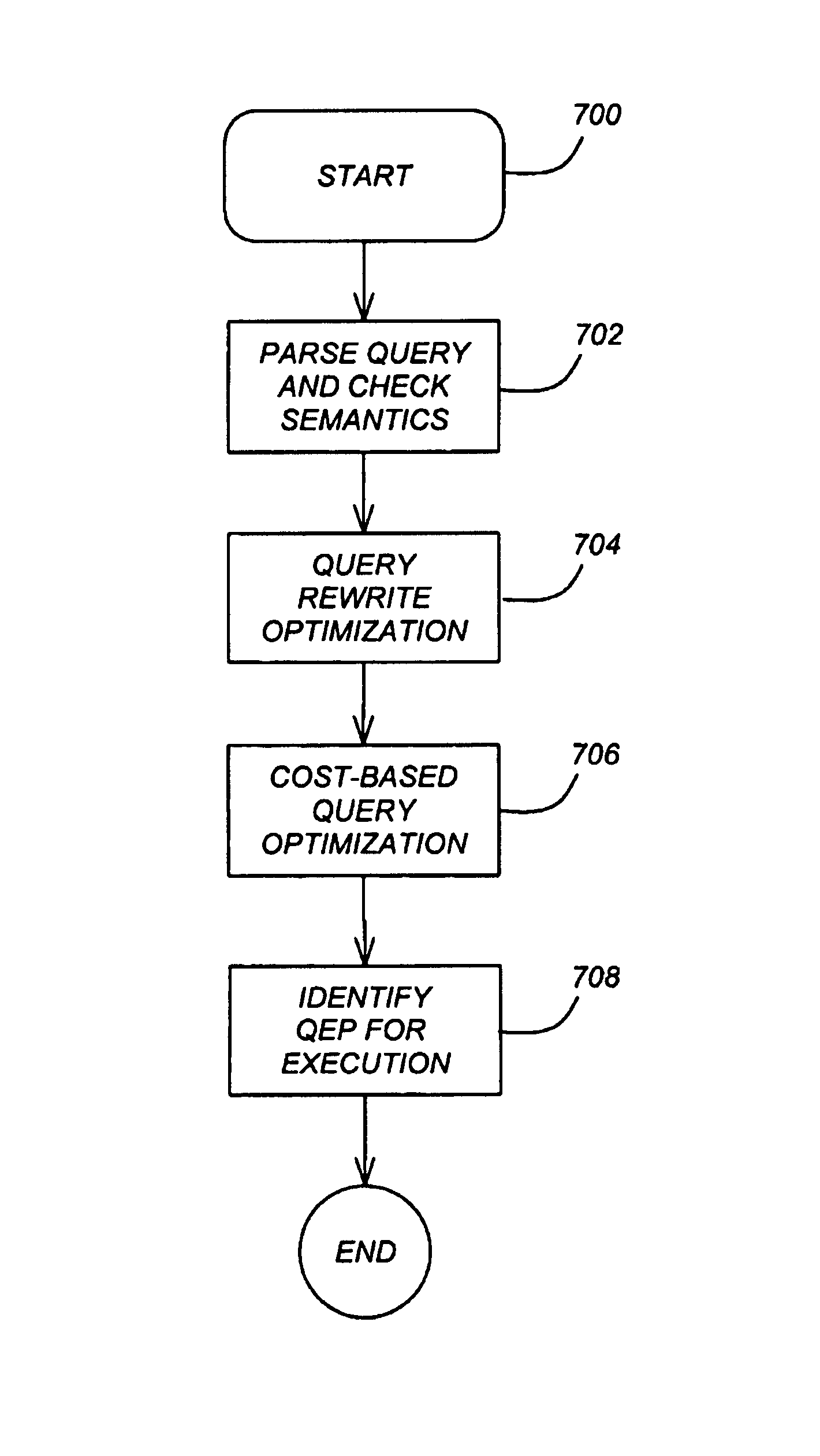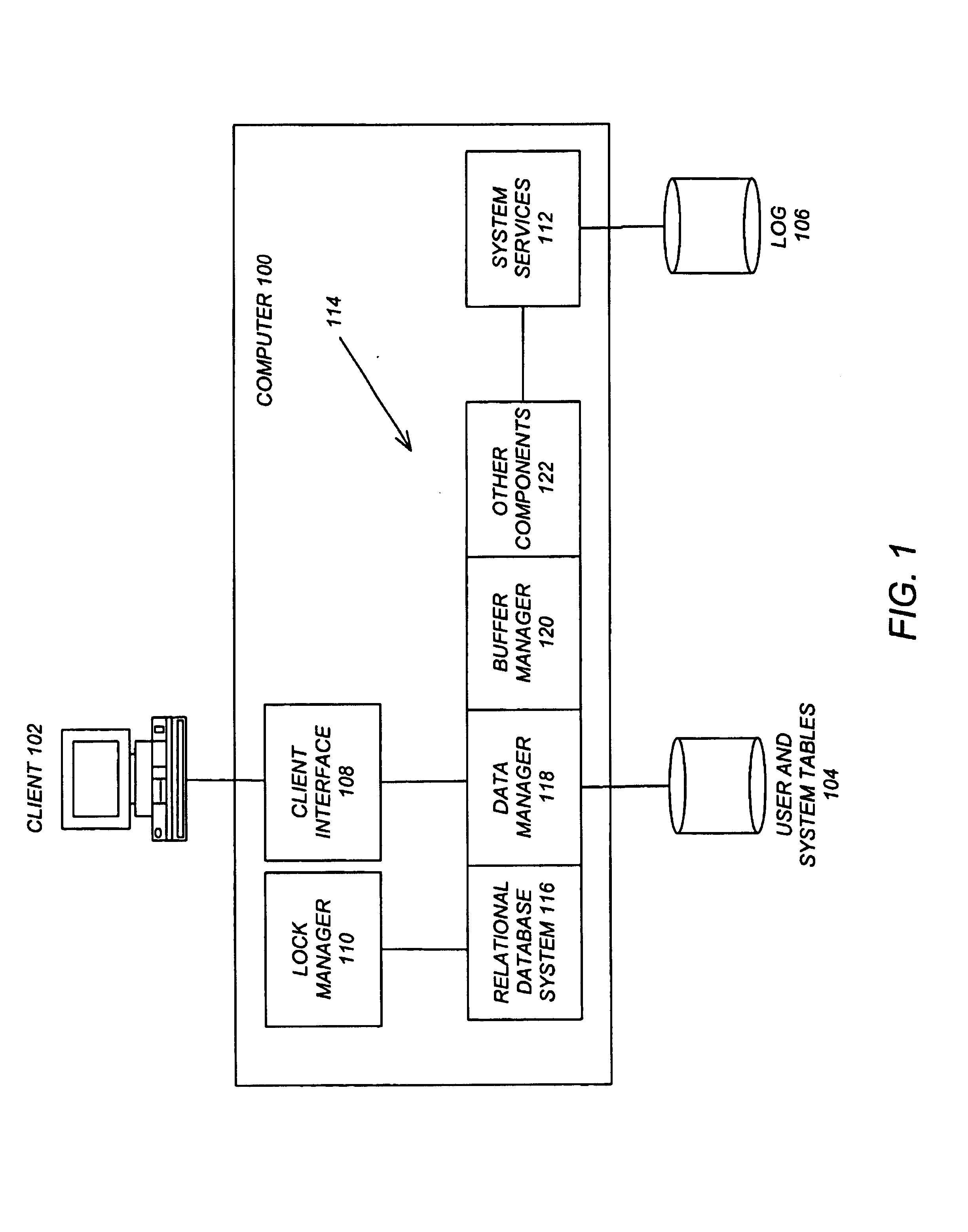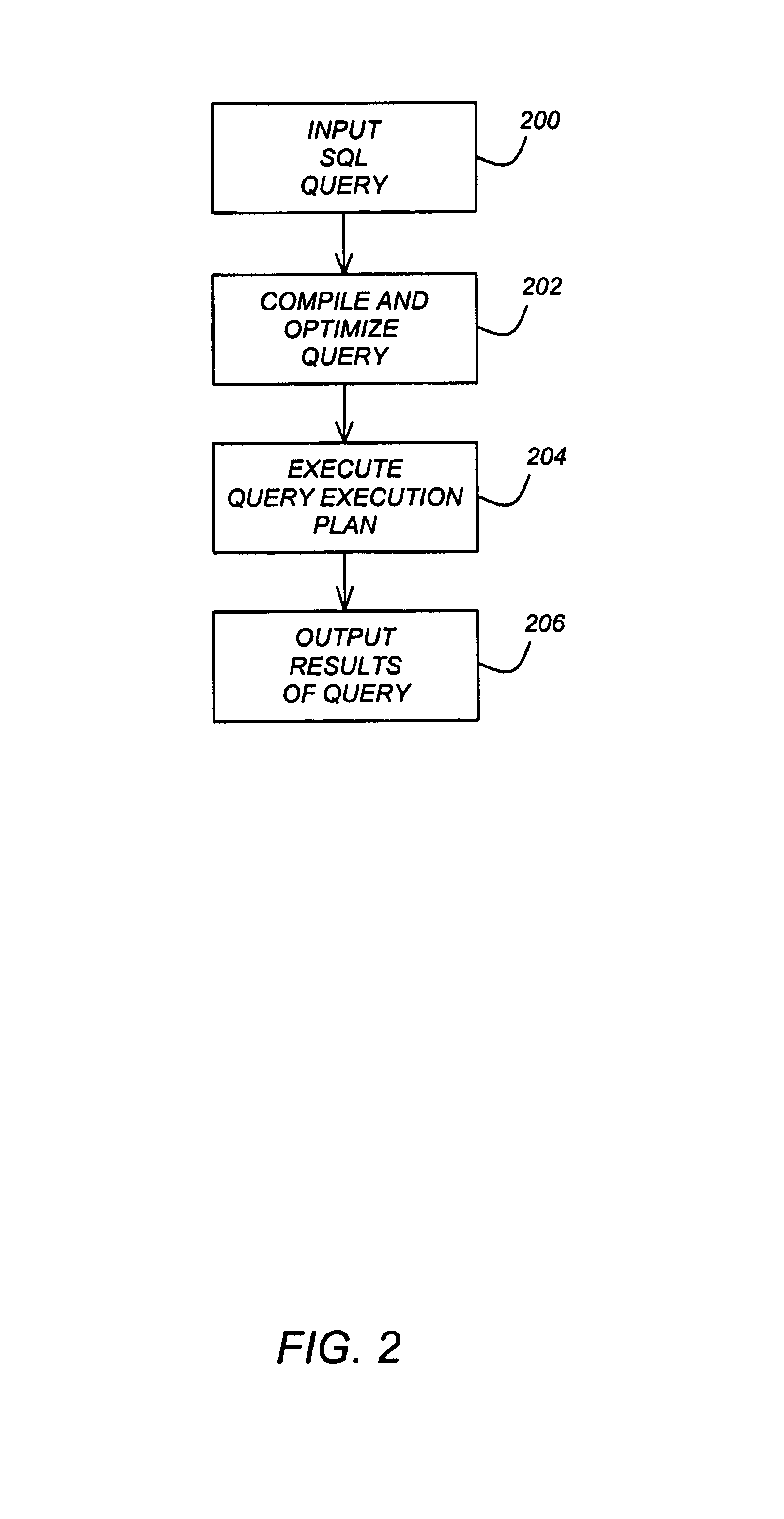Optimizing database queries using query execution plans derived from automatic summary table determining cost based queries
a database and execution plan technology, applied in the field of database management systems, can solve the problem that the table cannot be used by an optimizer within the rdbms software to improve performan
- Summary
- Abstract
- Description
- Claims
- Application Information
AI Technical Summary
Problems solved by technology
Method used
Image
Examples
example
[0130]As described above, the optimizer determined during the matching phase that the rich-employees AST overlaps the requirements of Query 1. Table 1 showed the properties and mapping information associated with this AST. As described in the section above entitled “Rules and Requirements”, during its normal bottom-up processing for this query, the optimizer invokes the access rule to build QEPs representing various access strategies. Table 3 illustrated the requirements used for one such access rule invocation for Query 1. FIGS. 4A and 4B showed alternative QEPs produced by this rule invocation and Tables 2A and Table 2B showed the properties of these QEPs.
[0131]The optimizer then looks to supplement these QEPs by invoking the access rule again and again, for each candidate AST whose properties overlap with the original rule requirements. (So, in this instance, the set of QEPs normally produced by the access rule are supplemented by using the access rule itself). Prior to each invo...
PUM
 Login to View More
Login to View More Abstract
Description
Claims
Application Information
 Login to View More
Login to View More - R&D
- Intellectual Property
- Life Sciences
- Materials
- Tech Scout
- Unparalleled Data Quality
- Higher Quality Content
- 60% Fewer Hallucinations
Browse by: Latest US Patents, China's latest patents, Technical Efficacy Thesaurus, Application Domain, Technology Topic, Popular Technical Reports.
© 2025 PatSnap. All rights reserved.Legal|Privacy policy|Modern Slavery Act Transparency Statement|Sitemap|About US| Contact US: help@patsnap.com



